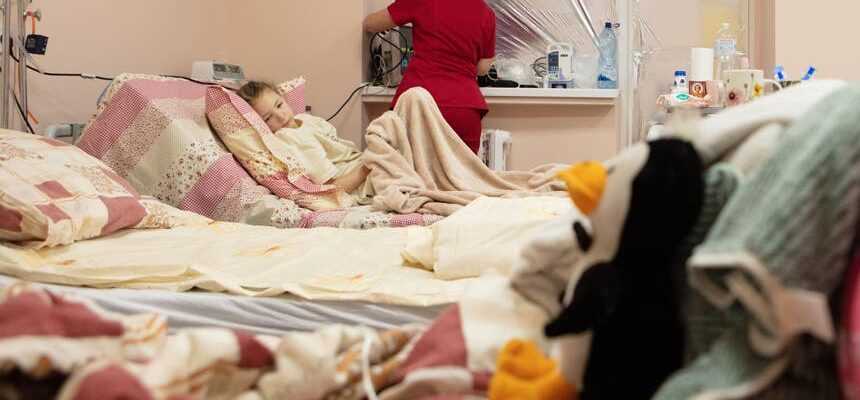Florian Rainer for NZZ
Millions of strong Ukrainians are fighting heroically against the Russian invaders. But there are also the others: the weak, the old, the sick. A visit to the weakest of all, the sick children.
Every time the air-raid siren wails, little Anton gets up “quickly like a soldier” and goes down to the air-raid shelter of the Lviv Children’s Hospital with the nurses and around 60 other little patients. “Like a soldier,” says Anton and smiles pensively, English is already a part of his world. It is a bit cramped in the air raid shelter, but “not so bad”. There are mattresses to sleep on, he makes little paper figures, and he likes to sing the national anthem with the other children and the nurses and carers. He likes it.
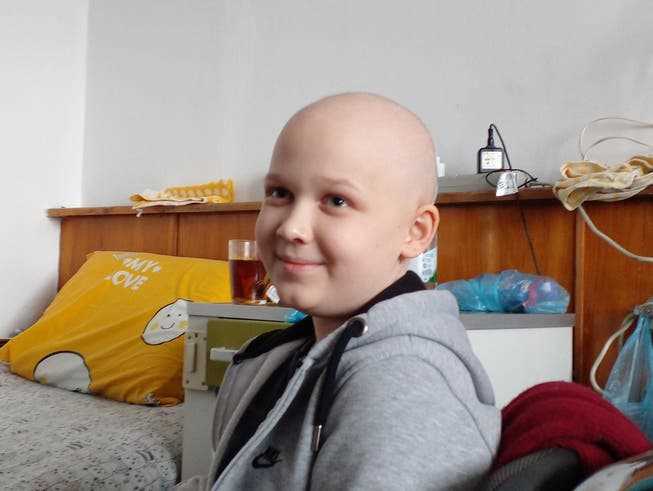
Anton is thirteen and has a brain tumor. He loves his carers and likes to sing the Ukrainian national anthem in the air raid shelter.
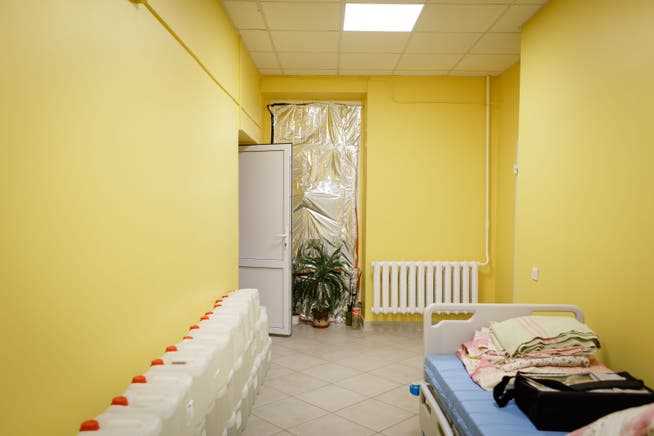
A room in the Children’s Hospital in Lviv, western Ukraine.
Anton is thirteen years old. He has a brain tumor, which in Ukraine can only be treated here at the Lviv Children’s Hospital. The chemotherapy has cost him the hair on his head. But she might save his life – if he doesn’t lose it in some other way, in the war against Putin’s brutal aggressors. Anton came the day before from Borislav, 50 kilometers south of Lviv. We can’t talk to him for long, time is pressing. Time is always of the essence in these weeks of war. “I like doctor,” says Anton. It’s not trained, Anton really loves the doctors and nurses. He knows very well that they are the ones who save his life. And what would Anton like to be when he grows up and is completely healthy again? “Financial Advisor.”
Three floors down we meet Olga and Yevheniya, a young mother and her daughter. They come from Kharkiv, only arrived in Lviv this morning and are to be taken to Poland on the same day. Olga holds her daughter in her arms and keeps stroking her. What she tells is a story of horror that no one would have thought possible in modern Europe. Until 2014, Olga lived in Donbass. Then came the first Russian aggression in Donetsk and Luhansk, “I lost everything”. She fled to Kharkiv, where she gave birth to Yevheniya – a premature baby, a disabled child and yet her everything. Yevheniya is five years old today. She has convulsions and epileptic seizures.
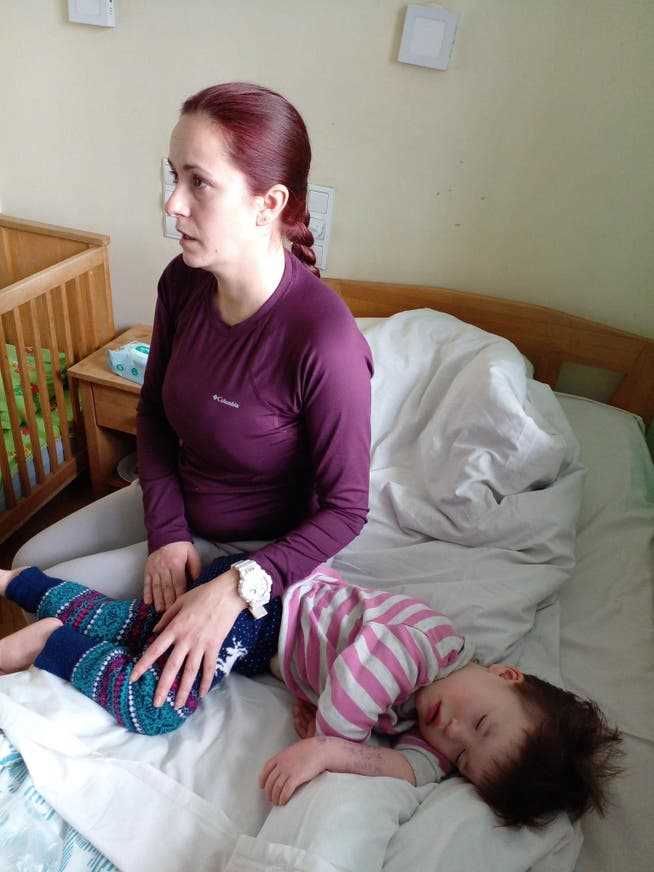
Olga fled Kharkiv with her sick daughter Yevheniya. “It’s pure hell there.”
In spite of all this, Olga and Yevheniya lived “a reasonably happy life”. Until the war started. ‘I saw it coming. We all saw it coming.” About a month before the invasion, says Olga, a striking number of Russians rented apartments in Kharkiv and spied. Then came the invasion, the bombs fell, their world sank into rubble and ashes. Olga’s quarters came under heavy fire, the young mother lay on the floor of her apartment most of the time, her sick child in her arms. After a few days, she fled to a metro station, but even there she kept hearing bombs and rockets falling. It was cold, Yevheniya didn’t get the medicine she needs – “I thought she wouldn’t survive”.
But then help came. An old colleague who worked on the railways got Olga two tickets to Lviv. Unparalleled chaos reigned on the train, people were fighting for their seats, everyone was screaming, “and at the same time everyone was always looking outside, up at the sky. We were afraid of more bombs.” The journey via Kyiv to Lviv took twenty hours.
Olga describes the situation in Kharkiv as horrifying. Every order has collapsed. «Everyone is armed, our people, the Russians, everyone. Everything was destroyed, planes flew over our heads and we had to take cover every time.” Olga worked in a small rehab ward that took care of patients like her daughter. “But in the end everything was missing. We were out of medicine. The children died. Like flies.”
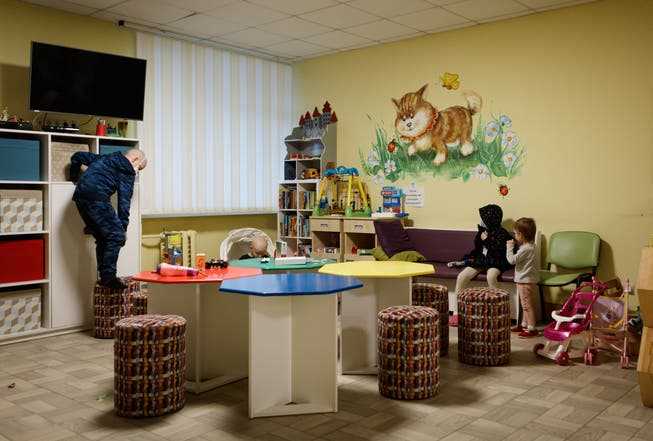
A common room in the Children’s Hospital in Lviv.
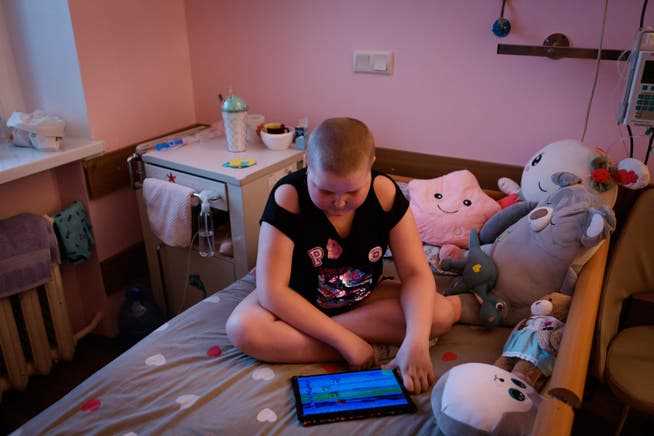
A child sits in a room in the children’s hospital in Lviv.
Olga is happy about the refuge she found at the Lviv Children’s Hospital. She is happy to be with her child. And she is happy about the help from abroad, especially from Poland. And yet, that’s how it is sometimes, she really doesn’t want to leave. “I want to go back to Kharkiv,” she says.
How doctors and nursing staff are holding up in these difficult hours is simply great. They do their work calmly, matter-of-factly and composed, although there is an unparalleled hustle and bustle. Buses stop in front of the hospital and bring new patients, others are getting ready to drive to the Polish border. “We suffer with our little patients,” says Natalia, an employee responsible for communicating with foreigners. Natalia speaks good English and exudes energetic optimism. But now and then, when she feels unobserved, her head droops, her eyes close for a moment, and you can see how infinitely tired and weary she is. These people don’t just suffer with them: they sacrifice themselves.
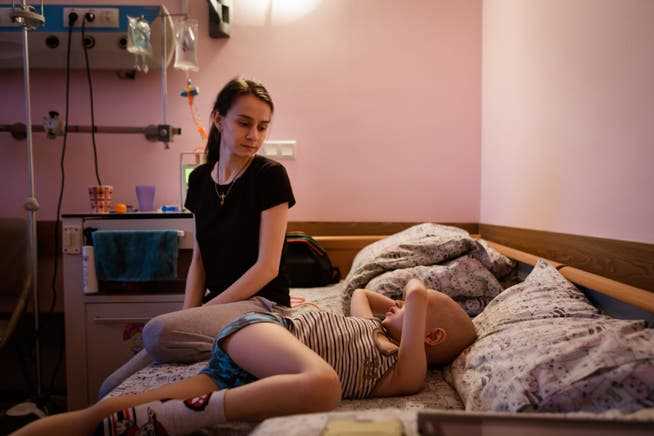
There is a shortage of medical supplies in the Lviv Children’s Hospital.
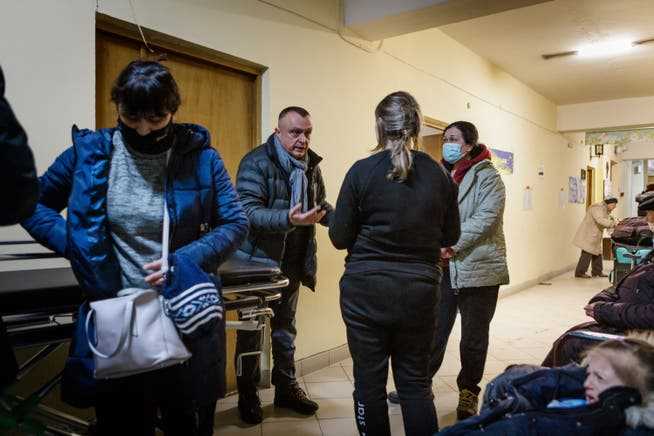
The director of the children’s hospital in Lviv, Andriy Synyuta, talks to relatives.
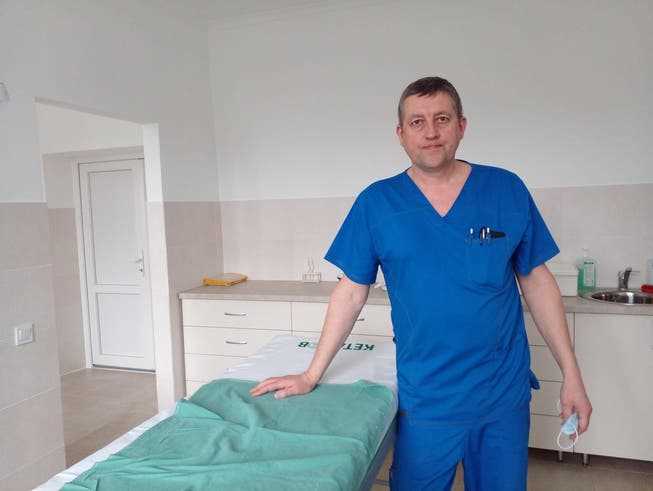
The chief surgeon Bohdan Romanischin is currently using up the last reserves. He mainly needs antibiotics and insulin.
Bohdan Romanischin, head of the surgical department, is also exhausted. The 48-year-old describes the situation as “quiet for the time being”, he seems to have an idea of what can still happen to this hospital. Around a hundred children are currently being cared for here, he says. But the numbers are changing rapidly because many children are being transferred to Poland and because new patients are constantly being brought in from embattled areas in the east, from Kharkiv, Kyiv, Kherson, Odessa and Zaporizhia. 47 children have arrived from Kharkiv alone in the past few days.
Romanischin is calm and deliberate, he is a real doctor. But what he says is alarming. “We only have small reserves of medicines. The problem is that usually a large part of the supply comes from Kyiv. But we hardly have access to that anymore.” Therefore, it would be good to find alternative delivery routes – via Poland, Slovakia, Hungary. The hospital needs a lot, according to Romanischin, especially antibiotics and insulin.
An old Ukrainian friend who has worked in this field for decades points to the increasing brutality of the Russian aggressors. He is asking for humanitarian aid for the defenders, the civilians and the many internally displaced people who never make it abroad. Blood reserves, field hospitals, sleeping bags and sleeping pads, couches, survival rations, lights, batteries and water sterilization systems are urgently needed. Fuels of any kind are also welcome.
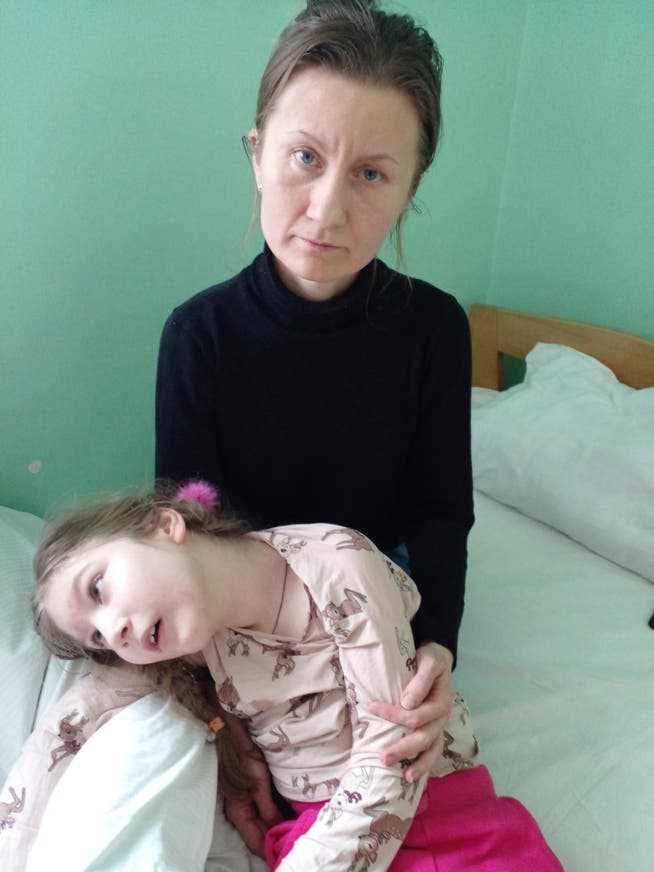
Alexandra found refuge with her sick daughter in the Lviv Children’s Hospital. She speaks little, she is exhausted. But she is glad that she is to be taken to safety in Poland on the same day.
The children’s hospital in Lviv works with many countries and has also received generous support from Switzerland for a long time. The Zurich pediatrician Jürg Streuli is currently organizing a transport with the aim of bringing things to the Ukraine that can no longer be bought there. He knocks on the door of doctors’ associations, children’s hospitals and other hospitals and collects what would otherwise have been sold there – no rejects, “no waste”, as Streuli emphasizes, but good goods that can save lives.
A 40-ton truck is scheduled to start its journey to Ukraine in the coming week, fully loaded with an X-ray machine, an operating table, bandages, external fixators (devices for temporarily fixing broken bones), hemostatic drugs, sutures and chairs. It is a first transport, one has to fear that many more will be necessary. The children and the doctors in Lviv will be happy about the help.
